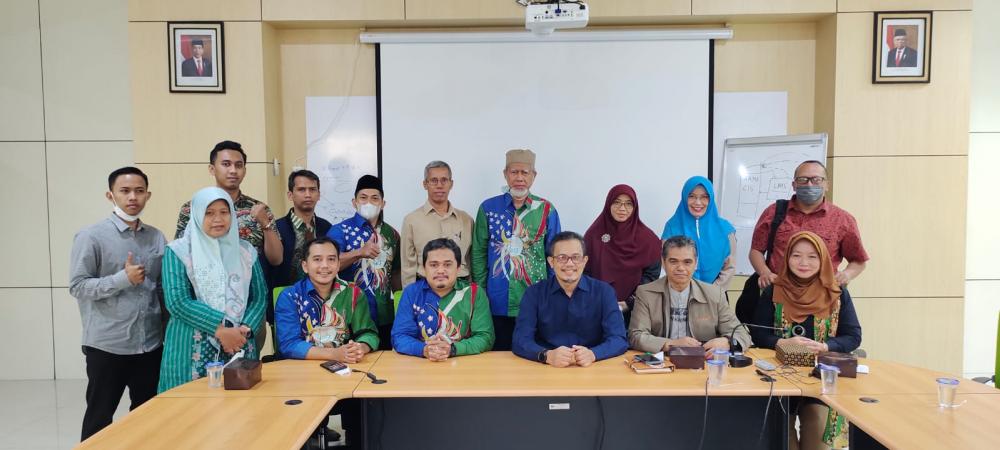BACHELOR OF EDUCATION FOR ISLAMIC ELEMENTARY SCHOOL TEACHERS PROGRAM "NGANGSU KAWRUH" MBKM TO INDONESIA UNIVERSITY OF EDUCATION BANDUNG

Beginning in 2020, the Indonesia University of Education (UPI) Bandung will implement the "Independent Campus, Freedom to Learn" or MBKM program. However, the current MBKM cannot be implemented, as Mr minister Nadim Makarim said. Mas ministry desires that MBKM give students complete flexibility as a kind of individual study. However, it is not very easy to comprehend. Why is it so difficult to comprehend? My response attempts to describe the Benchmarking Bachelor Of Education For Islamic Elementary School Teachers Program and other undergraduate study programs Benchmarked to UPI on March 29, 2022. Our first benchmarking took place at the Faculty of Mathematics and Natural Sciences, and we then moved on to the UPI Faculty of Education. The Dean and Deputy Dean of the Faculty of Mathematics and Natural Sciences make opening speeches. The discussion was then followed by a question and answer session about MBKM. The MBKM explanation begins in 2020 when they design the MBKM curriculum, which is also what the Bachelor of Education For Islamic Elementary School Teachers Program did.
However, at UPI, the MBKM curriculum was developed after 2020, followed by a modification or redesign of the curriculum. However, even after revision, the reality of the current MBKM curriculum was not up to expectations. Following that, a second revision was carried out, which included the addition of optional courses for MBKM, bringing the total number of MK to 53 SKS with obligatory credits ranging from 140 to 144 SKS as standards for implementing undergraduate credits. The following question is, "Why to expand courses and credits?" Students in semesters 1-5 attend classes at UPI on their own. Then, in semester 6, it is allowed to take courses outside of UPI to combine MBKM with courses and credits offered. The final question is, how is MBKM being implemented at UPI? The introduction of MBKM at UPI has been as simple as student exchanges across universities, with students attending courses with the same learning achievement (CP) at other institutions.
In addition, there is a lecturer exchange. UPI professors also teach at other partner universities. What about the implementation of a more complicated MBKM? The most complicated implementation of MBKM is the implementation of MBKM through 8 kinds of MBKM. Internships, student exchanges, village construction (thematic actual work courses), humanitarian projects, entrepreneurship, and independent study. However, this has not been entirely done for the eight kinds of MBKM. There are still difficulties in the execution and conversion of curriculum-prepared courses. Then there is MBKM, controlled directly by the ministry, notably the teaching campus. Students who teach on campus will receive around 20 credits. However, this conversion appears to have pros and cons among UPI teachers, particularly in 20 credits. What may then be transformed is Indonesia International Student Mobility (IISM). At UPI, this IISM is available in two forms: converted into courses and not converted but instantly recognized as acceptable credits. (April 2022, Maemonah)
